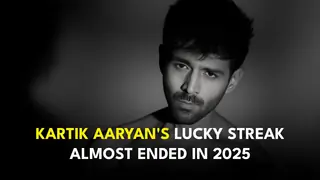Originally posted by: lashy
Excellent tip. I am no good at anagrams... but I do love playing scrabble and bananagrams... 👍🏼 and thankfully, not the worst at home at the latter two... so... 😆
Yes... we do😳
Btw,
Thanking you all for your wishes, maasis, aunties and akkas! 🤗
Love,
Vidhur
Rose, the name 'Vidhur' or 'Vidur' (Vidurar in Tamil) is a very renowned character from Mahabhart.
Do you remember the story of how it all started? When Ambika and Ambalika - queens of Hastinapura had no issues, Sage Vyasa was called on by his mother Satyavathi to grant them motherhood.
Vyasa had a fearful appearance - Ambika shut her eyes as soon as he walked in. So, Dritharashtra was born blind. Ambalika went pale with fear. So, Pandu was born sickly. Vyasa also visited their lady-in-waiting. And she was the only one who was brave & stoic in his person. To this lady-in-waiting was born Vidhur.
Barring Krishna, Vidura was most respected as an advisor by the Pandavas whom he forewarned on various occasions of Duryodhana's plots - such as Duryodhana's plan to burn them alive in the Lakshagraha or "House of Lac". He was known for his statecraft and wisdom. Krishna respected Vidura for his devotion to people's welfare, and his proficiency in every sphere of knowledge.
When Krishna visited Hastinapura as a peace emissary of the Pandavas, he shunned Duryodhana's offer to stay in the royal palace and instead stayed at the home of Vidura, on account of his being the only neutral man in the Kaurava court. Vidura was the only person (excepting the prince Vikarna, a brother of Duryodhana) who protested against the humiliation of Draupadi in the Kaurava court.
In protest against the Kurukshetra War, Vidura resigned from the post of minister. After the great battle, Yudhishthira appointed Vidura the prime minister with complete control of the government. However, following the carnage of the war and his own age, Vidura did not have the heart to govern. Soon after, he retired to the forests as an ascetic. Viduraniti, or Vidura's Statecraft, narrated in the form of a dialogue between Vidura and King Dritrashtra, is considered the precursor in some ways of Chanakyaneeti. Vidura is held to be a paragon of truth, dutifulness, impartial judgement and steadfast dharma. He is considered the embodiment of the inner consciousness of the Mahabharata.
I have always been extremely impressed with Vidhur's character in Mahabharat - who for some reason, has remained lesser known than the likes of Karna/Bheeshm or Dronacharya (who have shades of grey in their lives.)
When the opportunity came, I jumped at the chance to name my son after him - liking the sound of it, the meaning behind it and the person it stood for. 😊





























652